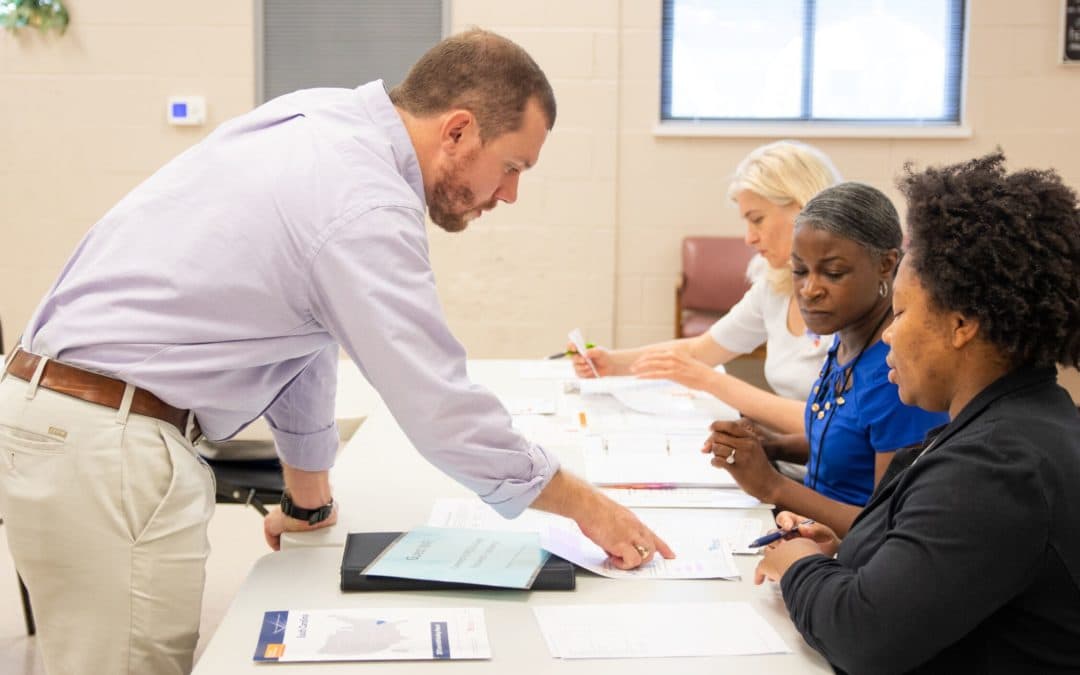Community coalitions in Cherokee, Darlington and Williamsburg counties have been selected by the South Carolina Office of Rural Health (SCORH) to participate in Blueprint for Health, a program that supports rural communities as they work to address the root causes of poor health.
With funding from the BlueCross® BlueShield® of South Carolina Foundation, an independent licensee of the Blue Cross and Blue Shield Association, the Blueprint for Health program brings together rural community leaders from multiple sectors to collaborate on the best ways to solve local issues related to health. The 18-month endeavor includes a leadership training course, development of a community project focused on improving a specific root cause of poor health, and the creation of a vision for community health.
In Cherokee County, coalition members hope to create a culture of health through education, leadership development and cross-sector engagement.
“We want this process to improve the physical, social and emotional wellbeing of local residents,” said Teresa Spires, Executive Director for KNOW(2) Cherokee. “We realize that health is affected by many determinants, and these differ for the various sectors of our community. Creating a culture of health will require the input and support of all local residents.”
In Darlington County, coalition members hope the Blueprint for Health process will be an opportunity to streamline multiple activities and investments into a unified approach to improving health.
“By leveraging the efforts of different sectors, we can build on one another to achieve broader outcomes,” said Joe Bittle, Chief of Community Health for CareSouth Carolina and Chair for the Darlington County Coordinating Council. “This work will improve the Darlington County community and make it a healthy place where residents are born, grow, live, work and play.”
In Williamsburg County, the Blueprint for Health program will strengthen the Williamsburg Interagency Council through leadership training and more effective use of community assets.
“The coalition will have the ability to generate new ideas, develop customized solutions, and modify individual behavior to accept change,” said Paris Mebane, Health Extension Agent for Williamsburg County Clemson Extension Service and Chair for Williamsburg County Interagency Council. “This process will build consensus to proactively address health inequities in our community.”
Research shows that South Carolina ranks 42nd among all states when it comes to the overall health of its residents, and rural communities typically experience poorer health outcomes than their urban counterparts.
“The factors that contribute to health issues are best addressed at the local level. Blueprint for Health empowers local leaders to collaborate on solutions that will improve the overall health outcomes within the community,” said Darlene Lynch, Director of Community Health Transformation for SCORH. “The health of these communities won’t change overnight, but over time the work they’re doing will have a big impact on the health of their residents. Our office is proud to lead this effort.”
Cherokee, Darlington and Williamsburg make up the third cohort coalitions across the state that have been selected through a competitive application process to receive grant support for their projects. The Blueprint for Health program began in January 2018 in Barnwell, Dillon, Lancaster, Lee, and Oconee counties. Bamberg, Laurens, Marion, and Union were added in 2019.
About the South Carolina Office of Rural Health
The South Carolina Office of Rural Health (SCORH) is a non-profit organization with a mission to close the gap in health status and life expectancy between rural and urban communities in the Palmetto State. SCORH has been promoting investment, opportunity and health within rural communities since 1991.
With 27 percent of our state’s residents living in rural areas, SCORH believes in preserving the unique character of rural communities without compromising their opportunities and access to critical services.

